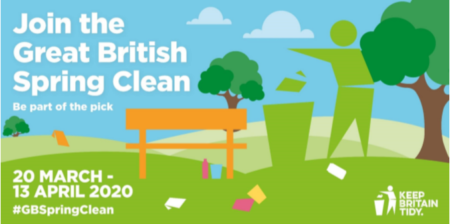Modernising the public’s view of recycling is an important way to boost community engagement, according to the opening speaker at the annual Communications Conference for the waste and recycling sector.
The message came from Stephen Bates – director of behaviour change communications at the Resources and Waste Advisory Group – who was speaking at the conference in London, which was organised by letsrecycle.com.
Mr Bates focused on the use of terminology with regard to use of the word ‘waste’. He emphasised a need for a rebranding of communications material away from the term ‘waste’, and more to ‘resources and recycling’ when kicking off the session.
According to Mr Bates, the negative connotations of waste can be left behind by focusing on ‘resources’, making “resources the new normal”.
The director also mentioned demographics, saying that in order to get the best long-term engagement with recycling methods, it’s best to engage with the youth of the area.
He said: “Focus on the group that is more likely to make big changes, and the likelihood is the community will have a higher engagement with recycling for a longer period of time. One way of achieving this is to create engaging, wacky content that will get people talking”.
Social media
The conference then heard from Julia George, digital marketing manager at Keep Britain Tidy, who spoke about the key to successful online engagement.
Ms George advocated making recycling seem fun and important to attract an audience, saying:
“Calls to action are successful, as well as purpose-driven campaigns like the Great British Spring Clean campaign”.
Once the right demographic is listening, a good way to keep hold of them is getting in contact to ask them questions and to answer them. “It’s important to respond, and to engage with your followers,” emphasised Ms George.
Case study
Julie Lewis, contracts and performance manager at Daventry district council, finished off the morning session with a case study showing how her local authority had implemented a new recycling scheme.

The conference heard that good communications are essential for recycling schemes to be a success (picture:Shutterstock)
Outlining her new 123+ service, Ms Lewis explained how Daventry had updated kerbside waste collections for recyclable and non-recyclable waste.
The food waste service remains at one collection per week. The collections of plastic, glass, aluminium cans, foil, paper and small and large cardboard collections in two boxes have been replaced by one large wheeled bin collected two-weekly. Non-recyclable waste destined for landfill went from being collected once every two weeks to once every three weeks and garden waste became an optional plus for an extra 69p per week.
Ms Lewis went on to explain the reasons behind the success of this huge “overhaul of the council’s recycling” with comms messaging playing a crucial role.
According to the council officer, clarity is key. “Sign-post what you want people to do and drip feed changes so people are ready,” she explained. By the time the scheme went live, the residents were so well versed in what was happening and their role within it that there was little to no resistance.
Taking surveys with the residents and using putting that information to good use also garnered fantastic results. “People hated the open topped boxes because they were too small and the rubbish blew everywhere, so we changed them” said Ms Lewis. “The key is in making things very, very simple and clear”. Replacing all kerbside recycling collections with one large bin collected twice-monthly appeared to make recycling in the council more accessible for residents who were finding it hard.
The contamination rate of the council’s recyclable waste remained at 12%-13% throughout the overhaul.
The post Comms experts told ‘make resources the new normal’ appeared first on letsrecycle.com.
Source: letsrecycle.com Waste Managment



